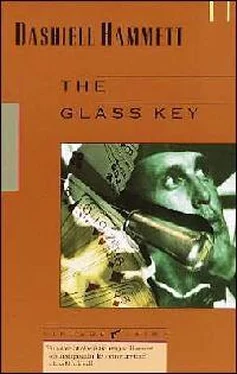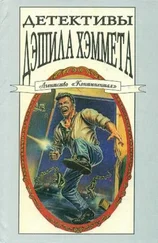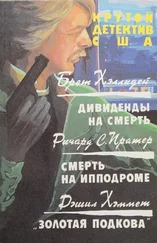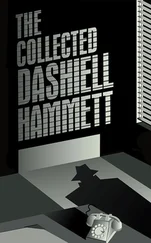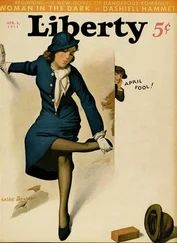Дэшил Хэммет - The Glass Key
Здесь есть возможность читать онлайн «Дэшил Хэммет - The Glass Key» весь текст электронной книги совершенно бесплатно (целиком полную версию без сокращений). В некоторых случаях можно слушать аудио, скачать через торрент в формате fb2 и присутствует краткое содержание. Год выпуска: 1931, Жанр: Крутой детектив, на английском языке. Описание произведения, (предисловие) а так же отзывы посетителей доступны на портале библиотеки ЛибКат.
- Название:The Glass Key
- Автор:
- Жанр:
- Год:1931
- ISBN:нет данных
- Рейтинг книги:5 / 5. Голосов: 1
-
Избранное:Добавить в избранное
- Отзывы:
-
Ваша оценка:
- 100
- 1
- 2
- 3
- 4
- 5
The Glass Key: краткое содержание, описание и аннотация
Предлагаем к чтению аннотацию, описание, краткое содержание или предисловие (зависит от того, что написал сам автор книги «The Glass Key»). Если вы не нашли необходимую информацию о книге — напишите в комментариях, мы постараемся отыскать её.
The Glass Key — читать онлайн бесплатно полную книгу (весь текст) целиком
Ниже представлен текст книги, разбитый по страницам. Система сохранения места последней прочитанной страницы, позволяет с удобством читать онлайн бесплатно книгу «The Glass Key», без необходимости каждый раз заново искать на чём Вы остановились. Поставьте закладку, и сможете в любой момент перейти на страницу, на которой закончили чтение.
Интервал:
Закладка:
Ned Beaumont pursed his lips and stared gloomily at O'Rory under brows drawn together. "You want me to rat on him, of course," he said.
"I want you to go into the Observer with the low‑down on everything you know about him being mixed up in — the sewer‑contracts, the how and why of killing Taylor Henry, that Shoemaker junk last winter, the dirt on how he's running the city."
"There's nothing in the sewer‑business now," Ned Beaumont said, speaking as if his mind was more fully occupied with other thoughts. "He let his profits go to keep from raising a stink."
"All right," O'Rory conceded, blandly confident, "but there is something in the Taylor Henry business."
"Yes, we'd have him there," Ned Beaumont said, frowning, "but I don't know whether we could use the Shoemaker stuff" — he hesitated— "without making trouble for me."
"Hell, we don't want that," O'Rory said quickly. "That's out. What else have we got?"
"Maybe we can do something with the street‑car‑franchise extension and with that trouble last year in the County Clerk's office. We'll have to do some digging first, though."
"It'll be worth it for both of us," O'Rory said. "I'll have Hinkle — he's the Observer guy — put the stuff in shape. You just give him the dope and let him write it. We can start off with the Taylor Henry thing. That's something that's right on tap."
Ned Beaumont brushed his mustache with a thumb‑nail and murmured: "Maybe."
Shad O'Rory laughed. "You mean we ought to start off first with the ten thousand dollars?" he asked. "There's something in that." He got up and crossed the room to the door he had opened for the dog. He opened it and went out, shutting it behind him. The dog did not get up from in front of the wine and gold chair.
Ned Beaumont lit a cigar. The dog turned his head and watched him.
O'Rory came back with a thick sheaf of green hundred‑dollar bills held together by a band of brown paper on which was written in blue ink: $10,000. He thumped the sheaf down on the hand not holding it and said: "Hinkle's out there now. I told him to come in."
Ned Beaumont frowned. "I ought to have a little time to straighten it out in my mind."
"Give it to Hinkle any way it comes to you. He'll put it in shape."
Ned Beaumont nodded. He blew cigar‑smoke out and said: "Yes, I can do that."
O'Rory held out the sheaf of paper money.
Saying, "Thanks," Ned Beaumont took it and put it in his inside coat‑pocket. It made a bulge there in the breast of his coat over his flat chest.
Shad O'Rory said, "The thanks go both ways," and went back to his chair.
Ned Beaumont took the cigar out of his mouth. "Here's something I want to tell you while I think of it," he said. "Framing Walt Ivans for the West killing won't bother Paul as much as leaving it as is."
O'Rory looked curiously at Ned Beaumont for a moment before asking: "Why?"
"Paul's not going to let him have the Club alibi."
"You mean he's going to give the boys orders to forget Ivans was there?"
"Yes."
O'Rory made a clucking noise with his tongue, asked: "How'd he get the idea I was going to play tricks on Ivans?"
"Oh, we figured it out."
O'Rory smiled. "You mean you did," he said. "Paul's not that shifty."
Ned Beaumont made a modest grimace and asked: "What kind of job did you put up on him?"
O'Rory chuckled. "We sent the clown over to Braywood to buy the guns that were used." His grey‑blue eyes suddenly became hard and sharp. Then amusement came back into them and he said: "Oh, well, none of that's big stuff now, now that Paul's hell‑bent on making a row of it. But that's what started him picking on me, isn't it?"
"Yes," Ned Beaumont told him, "though it was likely to come sooner or later anyhow. Paul thinks he gave you your start here and you ought to stay under his wing and not grow' big enough to buck him."
O'Rory smiled gently. "And I'm the boy that'll make him sorry he ever gave me that start," he promised. "He can—"
A door opened and a man came in, He was a young man in baggy grey clothes. His ears and nose were very large. His indefinitely brown hair needed trimming and his rather grimy face was too deeply lined for his years.
"Come in, Hinkle," O'Rory said. "This is Beaumont. He'll give you the dope. Let me see it when you've shaped it up and we'll get the first shot in tomorrow's paper."
Hinkle smiled with bad teeth and muttered something unintelligibly polite to Ned Beaumont.
Ned Beaumont stood up saying: "Fine. We'll go over to my place now and get to work on it."
O'Rory shook his head. "It'll be better here," he said.
Ned Beaumont, picking up hat and overcoat, smiled and said: "Sorry, but I'm expecting some phone‑calls and things. Get your hat, Hinkle."
Hinkle, looking frightened, stood still and dumb.
O'Rory said: "You'll have to stay here, Beaumont. We can't afford to have anything happen to you. Here you'll have plenty of protection."
Ned Beaumont smiled his nicest smile. "If it's the money you're worried about" — he put his hand inside his coat and brought it out holding the money—"you can hang on to it till I've turned in the stuff."
"I'm not worried about anything," O'Rory said calmly. "But you're in a tough spot if Paul gets the news you've come over to me and I don't want to take any chances on having you knocked off."
"You'll have to take them," Ned Beaumont said. "I'm going."
O'Rory said: "No."
Ned Beaumont said: "Yes."
Hinkle turned quickly and went out of the room.
Ned Beaumont turned around and started for the other door, the one through which he had come into the room, walking erectly without haste.
O'Rory spoke to the bulldog at his feet. The dog got up in cumbersome haste and waddled around Ned Beaumont to the door. He stood on wide‑spread legs in front of the door and stared morosely at Ned Beaumont.
Ned Beaumont smiled with tight lips and turned to face O'Rory again. The package of hundred‑dollar bills was in Ned Beaumont's hand. He raised the hand, said, "You know where you can stick it," and threw the package of bills at O'Rory.
As Ned Beaumont's arm came down the bulldog, leaping clumsily, came up to meet it. His jaws shut over Ned Beaumont's wrist. Ned Beaumont was spun to the left by the impact and he sank on one knee with his arm down close to the floor to take the dog's weight off his arm. ‑
Shad O'Rory rose from his chair and went to the door through which Hinkle had retreated. He opened it and said: "Come in a minute." Then he approached Ned Beaumont who, still down on one knee, was trying to let his arm yield to the strain of the dog's pulling. The dog was almost flat on the floor, all four feet braced, holding the arm.
Whisky and two other men came into the room. One of the others was the apish bow‑legged man who had accompanied Shad O'Rory to the Log Cabin Club. One was a sandy‑haired boy of nineteen or twenty, stocky, rosy‑cheeked, and sullen. The sullen boy went around behind Ned Beaumont, between him and the door. The bow‑legged ruffian put his right hand on Ned Beaumont's left arm, the arm the dog was not holding. Whisky halted half‑way between Ned Beaumont and the other door.
Then O'Rory said, "Patty," to the dog.
The dog released Ned Beaumont's wrist and waddled over to its master.
Ned Beaumont stood up. His face was pallid and damp with sweat. He looked at his torn coat‑sleeve and wrist and at the blood running down his hand. His hand was trembling.
O'Rory said in his musical Irish voice: "You would have it."
Ned Beaumont looked up from his wrist at the white‑haired man. "Yes," he said, "and it'll take some more of it to keep me from going out of here."
3
Ned Beaumont opened his eyes and groaned.
Читать дальшеИнтервал:
Закладка:
Похожие книги на «The Glass Key»
Представляем Вашему вниманию похожие книги на «The Glass Key» списком для выбора. Мы отобрали схожую по названию и смыслу литературу в надежде предоставить читателям больше вариантов отыскать новые, интересные, ещё непрочитанные произведения.
Обсуждение, отзывы о книге «The Glass Key» и просто собственные мнения читателей. Оставьте ваши комментарии, напишите, что Вы думаете о произведении, его смысле или главных героях. Укажите что конкретно понравилось, а что нет, и почему Вы так считаете.
